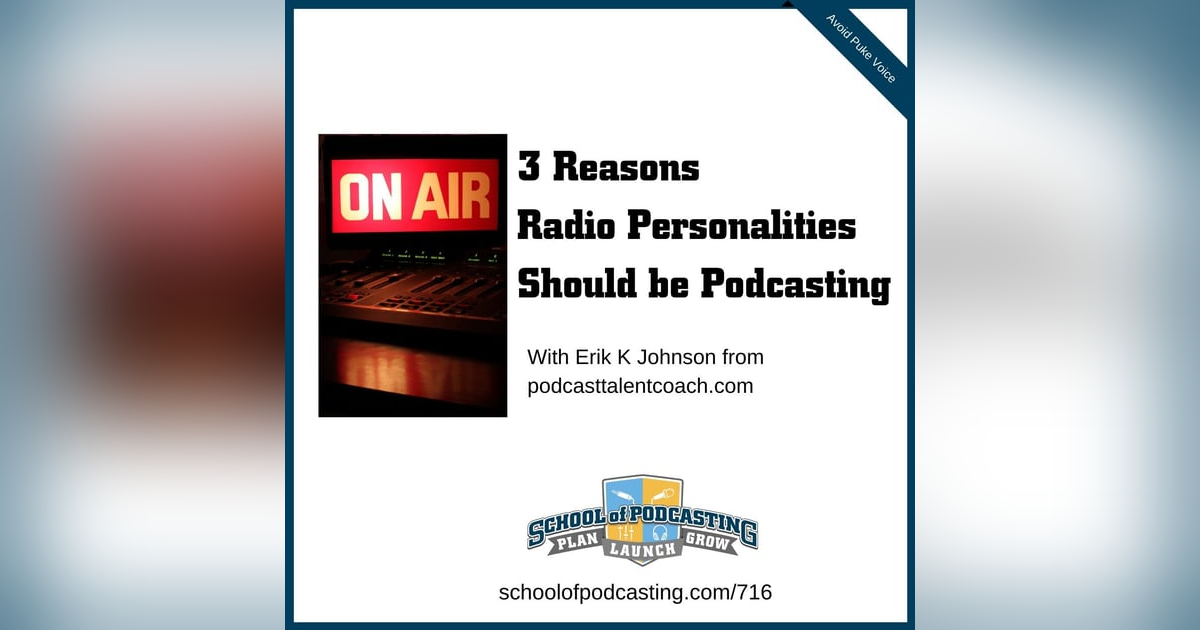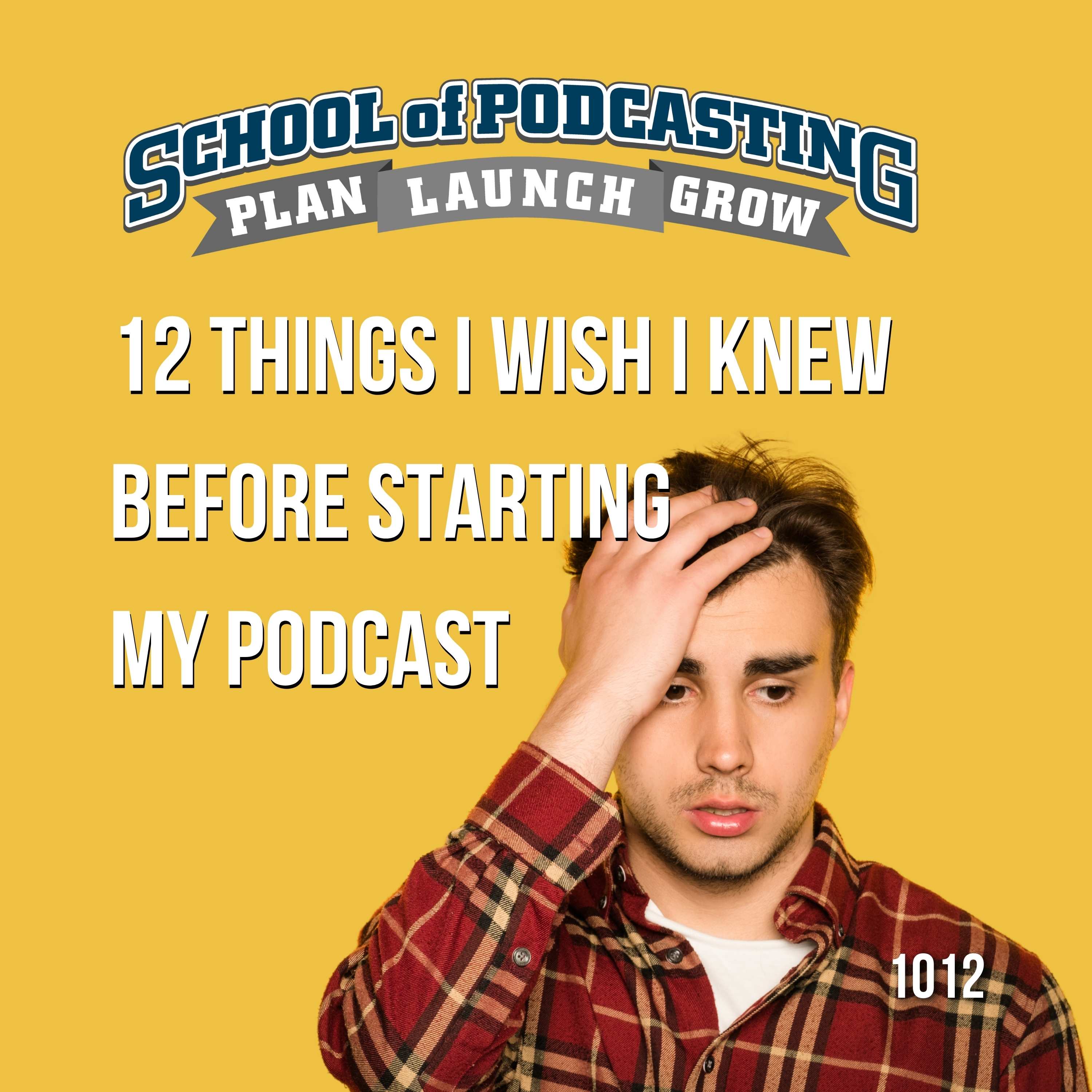Three Reasons Why Radio Personalities Should Be Podcasting

I thought it would be a good idea for Radio Personalities (DJs) to have a podcast. I know that they often lose their jobs due to the consolidation of stations, automation, genre changes, and more. However, I only thought it was a good idea. I didn't know because I only know to podcast, Erik K. Johnson is the Podcast Talent Coach and co-host of The Podcast Review show and he's been in radio 30 years and is a program director for iHeart Media. So I asked Erik for his opinion and he gave me three reasons radio personalities should have a podcast
Note: Most of this post was transcribed from the recording, so when you read "We" it's Erik and iHeart (not Erik and myself).
Three Reasons Radio DJs Should Have Their Own Podcast- Built-in Demo
- Freedom To Talk About Whatever You Want
- Develop a Deeper Brand
Be sure to read the contract and know what you're signing.
Mentioned in this EpisodeThanks to:
Arnie from www.footballhistorydude.com
Steve Stewart from www.stevestewart.me
Brande Ushio from https://fandompodcast.com/
Table of Contents1:43 Focusrite Studio Makeover
3:46 Revisit Bad Audio
5:26 Three Reasons Radio Personalities Should Have a Podcast
17:07 Say No to Puke Voice
19:53 Question of the Month
Ready to Start Your Podcast
See www.schoolofpodcasting.com/start
00:00 - Untitled
01:58 - Focusrite Studio Makeover
04:01 - Revisit Bad Audio
05:41 - Three Reasons Radio Personalities Should Have a Podcast
17:22 - Say No to Puke Voice
20:08 - Question of the Month






